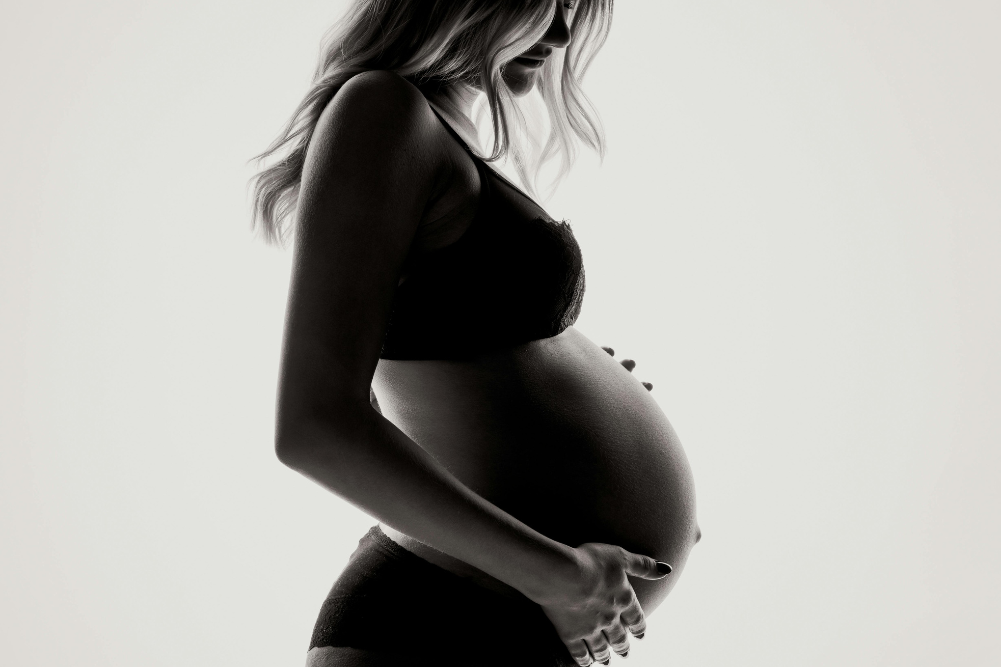Discover how to treat acne naturally
Acne is a common skin condition that consists of mild to severe pimple outbreaks, which usually occur on the face, back, chest and shoulders. We usually associate pimples with our teenage years, but adults can get them too.
Acne is not usually caused by dirty pores, poor hygiene or oily hair on the face, but most likely by overactive oil glands that produce excess sebum, which clogs the pores of the skin. We have sebaceous glands in each hair follicle or tiny pit of our skin that produce natural oils, which lubricate the skin. We have a large number of these glands on the face, back, chest and shoulders. The excess oil makes the pores of the skin sticky, which allows bacteria to become trapped inside, were they multiply and lead to inflammation. People with severe acne may have cysts that can cause scarring.
Main causes of acne
Factors that contribute to acne include oily skin, hormones (increased androgens, menstruation), allergies, stress, certain drugs (steroids, lithium, oral contraceptives, anti-epileptic drugs), over-consumption of junk food, saturated fats, hydrogenated fats and animal products, nutritional deficiencies, poor digestion (leaky gut), use of cosmetics and over-washing or repeated rubbing of the skin. Acne can be hereditary, particularly when there’s a family history of inadequate nutrition and hormonal imbalances.
The area of the breakout can also give you clues as to the cause. For instance, acne on the forehead can be related to sluggish bowels and being constipated. Acne on the cheeks is related to the stomach and poor digestion. Acne on the chin, neck, shoulders or back are all thought to be hormonally related, and if you get acne on your chest or stomach you may want to look at the health of your gallbladder.
Hormones
Acne is often related to an increase in androgens, which are male sex hormones such as testosterone, which stimulate the production of sebum and keratin. This leads to thickening of the tissue around the opening of the pores, making them more vulnerable to clogging. Increased androgen levels during puberty in males and females makes acne breakouts more likely during teenage years.
Acne flare-ups are also common before a period or in pregnancy due to increased levels of progesterone, which is another androgenic hormone. Oral contraceptives high in progesterone can also cause breakouts.
Acne is not usually caused by dirty pores, poor hygiene or oily hair on the face, but most likely by overactive oil glands that produce excess sebum, which clogs the pores of the skin.
The herb chaste tree or Vitex agnus is commonly prescribed for premenstrual acne, especially indicated where there are PMT symptoms. Vitex helps decrease androgens and is used to treat acne in both males and females. Vitamin B6 (50–100mg/day) is also recommended for acne that worsens before a period (along with B complex vitamins and zinc).
Digestion
It’s also important that your bowel, liver and digestion are all working optimally for healthy, clear skin. Increasing your fibre and water intake will help prevent constipation, which will assist with the elimination of toxins through the bowel. When you are constipated this puts more pressure on the body’s other eliminatory organs, including the skin, to remove the excess toxins.
Promoting healthy liver function with herbs such as milk thistle, globe artichoke and dandelion root will improve liver detoxification, which can help decrease the severity of acne. Eating brassica vegetables rich in sulfur compounds such as broccoli, cauliflower, cabbage and kale will also assist with liver detoxification.
The skin eliminates toxic waste through sweating. If the body contains more toxins than the kidneys and liver can effectively discharge, the skin takes over. As toxins escape through the skin, they disrupt the skin’s healthy integrity.
Low-GI diet
Eating a sugary, high-GI (glycaemix index) diet can contribute to inflammatory skin conditions such as acne and acne rosacea. High-GI foods promote an increase in insulin levels and insulin resistance, which in turn increases androgens. Switching to a low-GI diet is recommended for anyone suffering from acne.
Foods that are high in refined sugars should be limited or avoided, including biscuits, sugary breakfast cereals, muesli bars, soft drinks, chocolate, sauces and yoghurts. Also be wary of some so-called health foods, as they can contain hidden sugars.
Zinc is beneficial for helping control the production of oil in the skin along with helping balance hormones.
Remember that anything ending in ose is a sugar. Read labels carefully and check for sugars disguised under other names such as dextrose, maltose, honey, maple syrup, molasses, barley malt, rice syrup, fruit juice concentrate and — the worst type — high-fructose corn syrup. Stevia is a good alternative to refined sugars to use in beverages and baked goods.
Opt for a low-GI wholesome diet made up of nutritious unprocessed foods such as fresh fruits and vegetables, legumes, whole grains, fish, organic chicken and eggs, yoghurt, nuts and seeds, and fermented foods.
Vitamin C
Vitamin C plays an important role in preventing bacterial infections associated with acne. Vitamin C is also a powerful anti-inflammatory nutrient, which also helps improve immune function to fight off skin infections.
Rich sources of vitamin C include papaya, guava, strawberries, chillies, kiwifruit, citrus fruits, broccoli, capsicum (peppers), mango, parsley, kale and other dark-green leafy vegetables. Vitamin C is sensitive to heat, so eating these foods raw or lightly cooked will help maximise your vitamin C intake from them. Supplementing with 2g of vitamin C daily may also be beneficial.
Zinc
Zinc is an essential mineral that plays a vital role in the health of your skin. This vital nutrient has anti-inflammatory and healing properties that help alleviate inflammatory skin conditions such as acne and helps prevent scarring. Zinc is beneficial for helping control the production of oil in the skin along with helping to balance hormones responsible for breakouts, helping to normalise oestrogen production and reduce excessive androgen levels.
Studies have shown that increasing zinc-rich foods in the diet can help improve acne as effectively as antibiotics.
The best sources of zinc are grass-fed meat, seafood, chicken, eggs, kidney, liver, pepitas, sunflower seeds, nuts, raw cacao and tahini. Soaking nuts and seeds is recommended to increase their zinc bioavailability.
Supplementing with around 45mg of elemental zinc daily is also recommended for optimal skin health, especially for anyone who is deficient in this important mineral.
Omega-3 fatty acids
Omega-3 essential fatty acids, found in oily fish, are highly nourishing fats that are vital for keeping skin healthy. Due to their ability to inhibit inflammation, omega-3 fats are extremely beneficial in the treatment of inflammatory skin conditions such as acne.
Oily fish is the best source of these beneficial fats. Salmon, trout, mackerel, cod, sardines and anchovies are all excellent choices that are high in omega-3s and low in heavy metals such as mercury. Taking a good-quality fish oil supplement daily is also recommended to help maintain optimal omega-3 levels and beautiful healthy skin. Vegetarian sources of omega-3s include nuts and seeds, particularly walnuts, chia and flaxseeds and their oils.
Vitamin A & beta-carotene
Vitamin A reduces sebaceous gland activity and reduces androgens, making it effective for treating and preventing acne.
Good sources of vitamin A include liver, organic butter preferably from grass-fed cows, and cod liver oil. The benefit of taking cod liver oil daily is that you get a nice balance of vitamins A and D. Beta-carotene can be found in high levels in orange fruits and vegetables such as carrots, mango, pumpkin, sweet potato and apricots, and in green leafy vegetables such as spinach, kale, dandelion and collard greens.
Prevent infections
Having a good daily dose of immune-boosting foods is a great way to fight off skin infections associated with acne. Some of our best immune-enhancing foods include garlic, shiitake and reishi mushrooms, ginger, turmeric and probiotic-rich fermented foods such as yoghurt, kefir, miso and fermented vegetables. Ginger and turmeric are also lovely anti-inflammatory foods that can be enjoyed as a tea or added to vegie juices, smoothies, dressings and meals.
Water
Ensuring you drink at least two litres of water daily will help promote clearer skin by assisting with the elimination of toxins and impurities from the body. Try adding some freshly squeezed lemon juice to your water to help boost digestion.
Natural topical tips for preventing acne
Avoid using harsh, drying face washes; they also strip away the skin’s protective natural oils, which are important for preventing moisture loss and keeping the skin soft and supple. This leads to dry and irritated skin along with an increase in sebum production and increased risk of acne.
Use a quality natural face-cleanser and toner a couple of times a day to remove dirt, dust and oil that can clog up your pores. Many commercial toners contain alcohol, which can be very irritating and drying to the skin. It’s best to use a natural toner made from ingredients such as witch hazel, apple cider vinegar or rosewater.
Don’t use face creams and body lotions made from mineral oil, which will sit on the surface of the skin and prevent it from breathing and eliminating toxins through sweat. Instead, use a light, all-natural moisturiser after cleansing and toning.
Calendula extract or tea-tree dabbed on pimples can be really beneficial for healing pimples and preventing an infection.
Limit wearing makeup, and wash makeup brushes and sponges well. Natural mineral powder makeup is a better option.
Resist the urge to touch, pick or pop pimples. This will only make your skin worse by spreading any bacterial infection and increasing inflammation.
Apple cider vinegar toner
This refreshing and balancing toner is suitable for all skin types, especially oily and acne-prone skin.
=R1=
Tea-tree toner
This toner is ideal for preventing acne and pimples. Tea-tree has a natural antibiotic and antiseptic action, making it beneficial for helping to prevent acne.
=R2=
Green clay mask
This mask is ideal for oily and acne-prone skin.
Clays comprise finely ground minerals from the earth, including iron oxides, calcium and magnesium, and decomposed plant materials like seaweed, which have deep-cleansing and healing properties that support healthy skin. Using clay masks regularly will help promote clear, smooth and radiant skin. Clay masks help draw dirt from the pores and are beneficial for removing excess oil and impurities from the skin, while helping to tighten pores and tone skin. Clay masks can also help reduce inflammation, exfoliate dead skin cells and help improve micro-circulation.
For oily skin the best type of clay to use is green clay, such as French green clay, bentonite or Fuller’s earth clay. These clays contain magnesium oxide, which has a greater ability to absorb oil and draw out toxins.
=R3=
Manuka honey face cleanser
Ideal for all skin types, especially acne-prone skin.
Raw honey is a natural and effective cleanser, leaving your skin feeling soft and supple. It’s much gentler than soap and won’t strip the skin of its beneficial oils. Raw honey does wonders for acne-prone skin due to its anti-inflammatory and antibacterial properties.
Manuka honey with UMF (Unique Manuka Factor) properties is effective against many different types of bacteria. The number after the letters UMF on Manuka honey labels indicates its antibacterial strength — the higher the number the stronger its action and the more expensive it is. Keep a small jar of Manuka honey in the bathroom.
Wet your face with warm water then rub a small teaspoon of Manuka honey into your face in a circular motion. Leave on your skin for 10 minutes and then wash off with warm water and a warm face washer. Then splash your face with cold water. The result is lovely, soft, cleansed skin.








